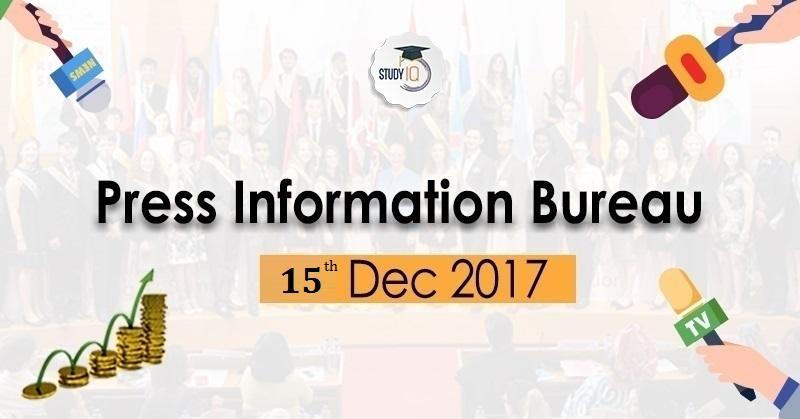Table of Contents
Vice President’s Secretariat
- World Conference on Vedas/“Vishwa Ved Sammelan”
- Shri M. Venkaiah Naidu has said that the Vedas preach world peace, universal brotherhood and welfare of all.
- Vedas have great relevance to humanity.
- Yajurveda: knowledge of Vedas is meant for the well-being of the entire humanity.
- Vedas do not refer to any caste or community
- Earliest works of ancient knowledge and philosophy in India
- Our civilization, culture, thoughts and philosophy are rooted in the Vedas.
- Vedas are the source of knowledge and guide us to advance in economic, social, educational and political fields and also in maintaining high moral and ethical standards.
- Vedic philosophy states that truth, non-violence, patience, penance and spiritual uplift are the foundations of a human life.
- Verse 5.60.5: No individual in the society is either big or small, according to Vedas.
- Maharishi Dayanand Saraswati, the builder of modern India and Founder of Arya Samaj, had given the message “Back to the Vedas” to the world.
- This has been endorsed by the renowned Orientalist, Max Mueller.
- Renowned philosopher and Nobel Laureate Maurice Maeterlinck had said the Vedas are the only and incomparable source of all knowledge.
Cabinet
- Approved the propsed Muslim Women (Protection of Rights on Marriage) Bill, 2017
A. It seeks to make instant triple talaq void and illegal.
B. The bill is designed to provide a shield for Muslim women.
C. The bill will be introduced in the current session of Parliament.
2. National AYUSH Mission: approval for continuation of centrally sponsored scheme from April 2017 to March 2020.
A. To provide cost effective AYUSH services.
3. 2,600 crore rupees special package for leather and footwear sector.
A. Potential to generate 3.24 lakh jobs in three years
B. Formalization of two lakh jobs.
4. The government gave its nod for continuation of non-lapsable central pool of resources scheme for North-Eastern region till March 2020 with an outlay of 5,300 crore rupees.
5. It also cleared introduction of another initiative-North East Special Infrastructure Development Scheme from 2017-18. The scheme is aimed at filling up the gaps in creation of infrastructure in specified sectors.
6. The government has decided to bear the Merchant Discount Rate (MDR) charges on transactions of up to 2,000 rupees made through debit cards, BHIM UPI or Aadhaar-enabled payment systems.
7. The Cabinet also approved National Medical Commission Bill, 2017.
- The decision was taken at a Union Cabinet meeting chaired by Prime Minister Narenda Modi.
- Briefing reporters after the meeting, Minister of Electronics and IT Ravi Shankar Prasad said, MDR will be borne by the government for two years with effect from 1st of January, 2018 by reimbursing the same to the banks.
- It is estimated that the MDR to be reimbursed would be 1,050 crore rupees in 2018-19 and 1,462 crore rupees in 2019-20
- *It will replace the Medical Council 1956 Act and enable a forward movement in medical education reform.
- It is a move towards outcome based regulation of medical education rather than process oriented.
- Opening up the medical education sector will lead to significant addition in the number of Undergraduate and Post-graduate seats and substantial new investment in this infrastructure sector.
- The Unique Identification Authority of India, UIDAI, has asked banks to install fingerprint and iris scanners in 10 per cent of their branches to expedite Aadhaar enrollment for those people who are seeking to open new bank accounts.
- The CEO of UIDAI, Ajay Bhushan Pandey told this to news agency PTI after Supreme Court’s interim order today.
- He said, the move will enable people who do not have Aadhaar to get the Aadhaar enrollment facility in the bank itself, and link bank accounts by 31st of March next year.
- He said, so far over 3,000 enrollment centres have been set up in bank branches all over the country, and overall they have to set up enrollment facility in 14,000 bank branches.

- We live in an age of hyper-connectivity, round-the-clock news channels and social media.
- 24-hour campaign silence before polling:
- The main idea was to meant to spare voters the intimidating hurlyburly of contact campaigning, in the pre-electronic age, for a day, to let them vote in peace on the day of polling.
- Still Physical campaigning in the vicinity of poll-going voters can be sought to be wound up one day in advance.
- The idea of campaign silence belongs to an age when direct appeals by candidates and party functionaries were the only way to reach out to voters.
- The situation today is different.
- This practice of an enforced period of quiet when candidates and party functionaries cannot reach out or appeal to the electorate must be abandoned.
- The Indian electorate is mature and has shown over and over again that it is able to make considered voting decisions without shutting themselves off from all information flows.






















 WhatsApp
WhatsApp